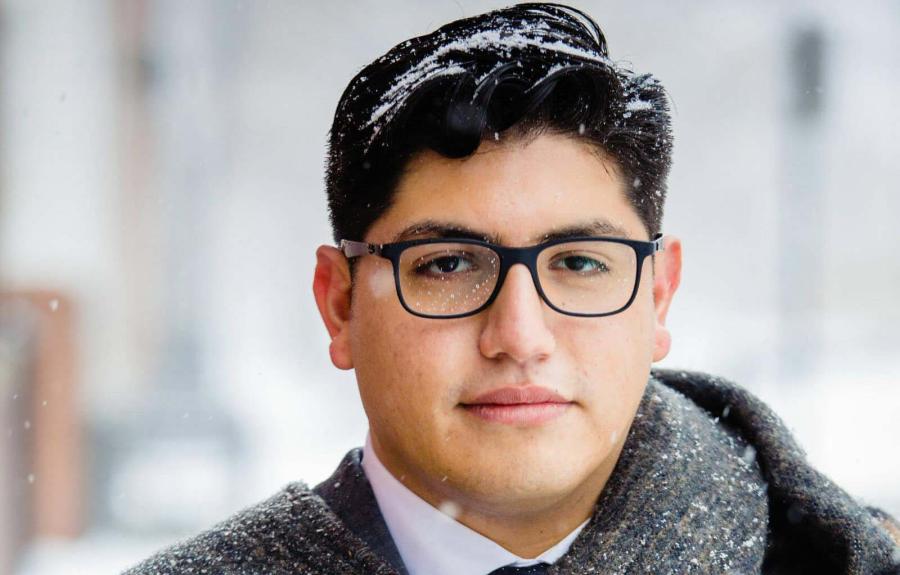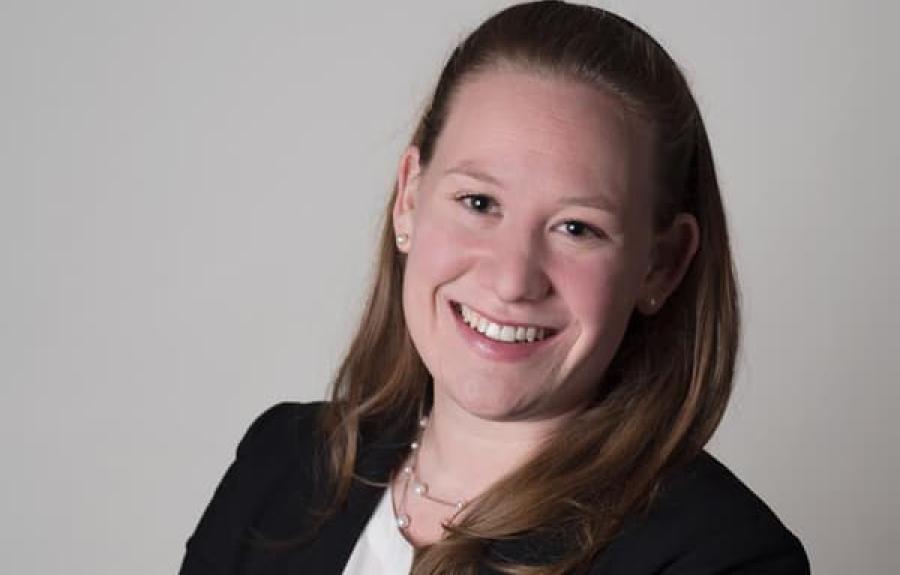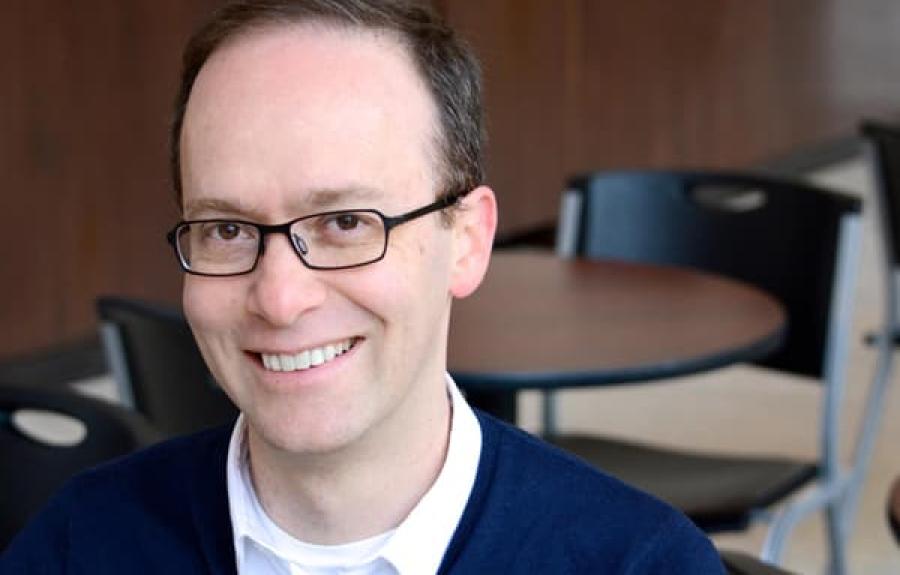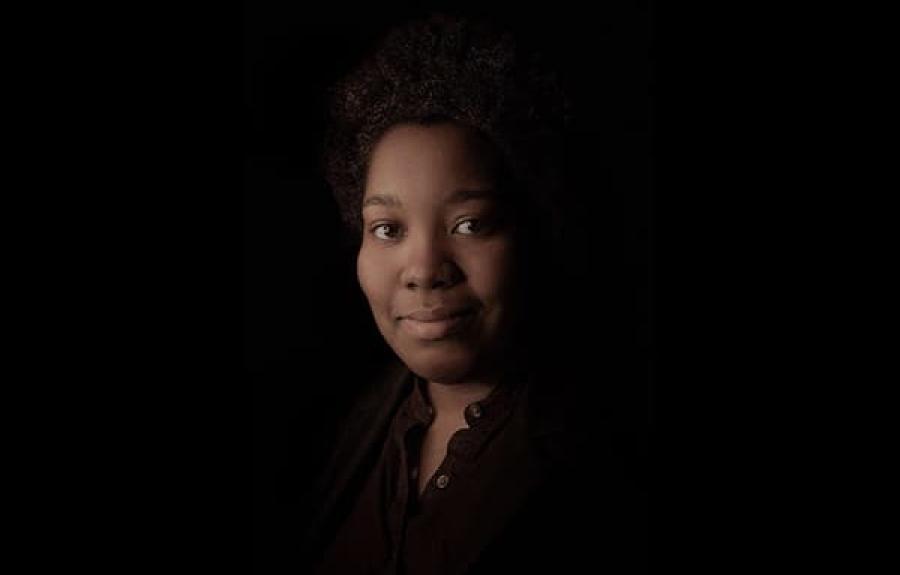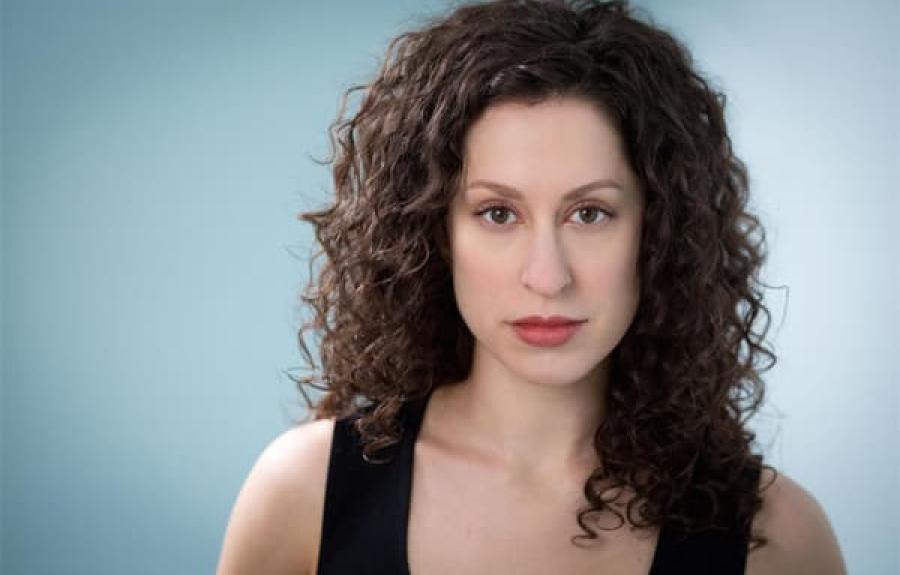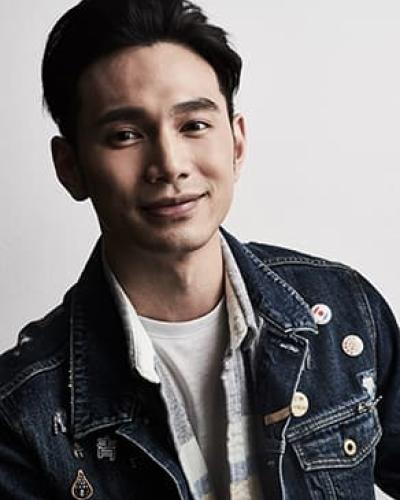The Journey from Student to Alum
The Performing and Media Arts (PMA) BA program provides students with a strong foundation in both the study and practice of our art forms: film/television/digital media, theatre, and dance. PMA students also develop transferable skills, such as creativity, collaboration, and critical thinking, that are applicable to a broad range of career paths. While some PMA students successfully pursue careers in the arts, others creatively apply their PMA training in other professional fields.
Gloria Majule
Gloria Majule '17
Playwright/Storyteller
Bio: Gloria Majule is a storyteller born and raised in Dodoma, Tanzania. She seeks to tell stories that bring multiple black voices together from across the world, and are accessible to black audiences no matter where they are. She writes for and about Africans and the African diaspora. Gloria has been awarded a MacDowell Fellowship and commissions by Audible and Atlantic Theater Company. She was a finalist for the Sundance Cultural Impact Residency. Her work includes My Father Was Shot in the Back of the Head (Relentless Award Finalist), Culture Shock (Leah Ryan Prize Winner), Uhuru (Alley All New Festival), and Fifteen Hundred (Blue Ink Award Finalist). A 3x O’Neill finalist and a 5x Susan Smith Blackburn Prize nominee, Gloria has been awarded residencies by Yaddo, Art Omi, The New Harmony Project and New York Stage and Film. Her work has been supported by numerous institutions, including The American Playwriting Foundation, Abingdon Theatre Company, The Alley Theatre, The Black and Latino Playwrights Celebration, Vassar’s Powerhouse Theater, and The New Group. Gloria graduated summa cum laude from Cornell University with a BA in Performing & Media Arts and Spanish, and was the first African woman to receive an MFA in Playwriting from Yale School of Drama.
What drew you to PMA when you were a Cornell undergraduate?
When I got to Cornell, I knew I loved writing and acting, but coming from a working class family in Tanzania, I didn’t think I would be able to make a living out of it. However, I found professors in PMA who saw my potential and encouraged me to take a leap of faith. I learned very quickly that there weren’t a lot of roles for Black Tanzanian women, so I decided to write these roles, and have been doing so ever since.
What classes/experiences in PMA stand out from your time at Cornell and why? How have these undergraduate classes/experiences in PMA informed your professional career?
The classes that I still think about and draw from in my practice are Acting I and II with Jeffery Guyton, Global Stages I and II with Sara Warner, Fundamentals of Directing with David Feldshuh and Playwriting I with Aoise Stratford. Acting I and II helped me build my confidence and ability to speak in public and express myself. They allowed me to open my mind and learn more about compassion and empathy. Global Stages I and II introduced me to theater practices across the world, inspiring me to have the boldness to create outside the limitations of the western canon. Sara Warner was the best faculty advisor I could have asked for, she is the one who challenged me to write my first full length play. I will never forget David Feldshuh’s words in Directing class, “nothing’s happening”, I think about this a lot when I feel like a scene isn’t working and can’t figure out why, a lot of the time it is because "nothing's happening" and I need to find the action and stakes of the scene. Playwriting I was the first playwriting class I ever took, and I am so grateful to Aoise for teaching me the basics of the craft. Finally, I would be remiss not to mention how much Godfrey Simmons impacted my life. He made it his goal to come to almost every rehearsal for my thesis play Life Sentence, and guided me in shaping the play and rewriting it. Writing is rewriting. I didn’t know at the time that I was working on what would be the first full length play with an exclusively black cast produced by PMA. As a black immigrant woman, it meant the world to have a black professor who understood the cultural context and significance of the work I was creating, and stood by me to help me make sure I was taking care of my target audience, the black diaspora. To this day, I always think about my target audience when I am writing.
What advice do you have for an incoming Cornell student with an interest in PMA?
Open your mind, take risks, take classes you think will be challenging, find mentors who believe in you.
What advice do you have for graduating PMA seniors who are interested in your field?
Everyone is on their own journey. Don’t compare your journey to someone else’s, focus on your own path, your own craft, your own growth. My mother always tells me, “each no is one no closer to your next yes”. I hold on to these words dearly, because they are so true. And when you do get your yes, my mentor Ngozi Anyanwu says, “pay attention to the people who say yes to you”.
Kristen Chan
Kristen Chan '24
Anchor Broadcast Associate at CBS Mornings, previously CBS Page, Production Assistant at The Masked Singer
Bio: Kristen Hannah Chan is a filmmaker, visual artist, and television professional based in the New York metropolitan area. With a focus on culturally-rooted coming-of-age stories, Kristen is dedicated to authentic, inclusive representations of the human condition. Currently, Kristen works as an Anchor Broadcast Associate for CBS Mornings.
Website: selahcinematic.com for professional inquiries/portfolio and krishannah.carrd.co for personal updates!
What drew you to PMA when you were a Cornell undergraduate?
I found my way to PMA pretty much right away. I came into Cornell with an insatiable hunger for movies and TV — not just to study them, but to make them, preferably alongside people who were just as obsessed. I came from an art school background, so I was used to being around brilliant, wildly creative people who weren’t afraid to get their hands messy in the making. I knew I needed that same kind of energy/community at Cornell. PMA quickly became that place — a space where I could roll up my sleeves, meet my people, and actually start creating.
What classes/experiences in PMA stand out from your time at Cornell and why?
Some of my most memorable experiences at Cornell were the moments I really started coming into my creative self and shaping my identity as a storyteller. I wrote, directed, and produced my first short films in PMA’s Film and Video Production I & II courses, often alongside friends who later became collaborators on thesis projects and beyond. I also had the opportunity to do an independent study with Dr. Samantha Sheppard where I wrote my first full-length TV pilot. These experiences helped me hone in on the kinds of stories I want to tell and how I want to tell them. And, like anything else in this field, the more I practiced, the more confident I became in my voice and my process.
How have these undergraduate classes/experiences in PMA informed your professional career?
The people you meet in the Cornell PMA department have a way of sticking with you — in the best way. It would be ridiculous not to mention my dear friends Noah Leety (who joined me at CBS right after graduation) and Annie Riedel (who’s been there for nearly every creative win since we met during our sophomore year at Cornell). Beyond the classes, friends, and productions, PMA also taught me a lot about grit. Being a well-rounded student at Cornell is no joke. It’s tough, it’s demanding, and it teaches you how to work hard, even when no one’s watching.
What advice do you have for an incoming Cornell student with an interest in PMA?
Say yes to things. There aren’t many times in your life when you’ll be this surrounded by creativity — and have the built-in time to actually explore it. Take the weird class. Join the late-night shoot. Make something just for the sake of making it. This is your chance to try things out, grow your portfolio, and have fun while you’re learning.
What advice do you have for graduating PMA seniors who are interested in your field?
Keep your curiosity alive, and stay open to trying anything. Don’t box yourself into one role or path too early. People will talk about “tracks” — the set steps you have to take if you want to be a director, producer, or whatever else — and sure, there’s a little truth to that. But the reality is, every experience (regardless of whether you think it's relevant or not) builds on the last and shapes you into a better storyteller. Your path might not look like anyone else’s, and that’s more than okay. There’s more than one way in — and there’s plenty of room for your voice once you’re there.
Jorge Silva
Jorge Silva '12
Bio: Jorge Silva is the Managing Director for The Virginia Wadsworth Wirtz Center for the Performing Arts at Northwestern University (Chicago & Evanston, IL). He previously served as the Managing Director for The Neo-Futurists and was the Producing Coordinator for The Goodman Theatre. He is also an alum of the inaugural WESTAF-Arts Midwest Leaders of Color Fellowship (2023). Recently, Silva received his MBA as an Edwardson Scholar at the University of Chicago Booth School of Business and graduated from the 2024 Global Arts Management Fellow at the University of Maryland (DeVos Institute). He is also the Executive Artistic Director for Pivot Arts Inc., a small NPO dedicated to supporting experimental artists of color.
What drew you to PMA when you were a Cornell undergraduate?
I really only developed my interest in theatre in high school; before that, I was a classical musician. Arriving at Cornell, I was still on the fence about what career path I would take—I originally set out to be a lawyer. And so, I left myself open to trying performance opportunities on campus with hopes of ingratiating myself with the community. In searching for a first-year writing seminar, the theatre program offered a class that immediately spoke to my interests: a play analysis course focused on border crossing and Latinidad. After that, I sought similar opportunities at the Schwartz Center that would aid my desire to understand my identity and thus identify my course of study.
What classes/experiences in PMA stand out from your time at Cornell and why?
Queer Theory with Sara Warner was, without exaggeration, life-changing. As I mentioned, I was in that phase of life where I was eager to create and understand my identity, and Professor Warner’s class put me on a direct path to confront my relationship to gender politics. It was a class that validated notions of non-normativity and provided a vocabulary for the many intrapersonal discoveries that were in process.
Of course, my current trajectory owes quite a bit to Beth Milles’s absurdism and adaptation courses; it was the first time I was creating work of my own (as opposed to interpreting texts). It felt highly experimental to not just have so much agency to do my own storytelling, but to do it in radical forms. I would eventually go on to apply what I had learned about absurdism, surrealism, and Dadaism as a member of The Neo-Futurists.
Finally, I think the Advanced Undergraduate Theatre Program was a major structure during my time at Cornell. Although I was performing and writing in many forums across campus, my coursework was primarily focused on lighting design. I had the great fortune of having the late Ed Intemann as a mentor and a friend. He served not just as a teacher but as a confidante who would not hesitate to challenge anything and everything I was doing. It might seem confrontational, but in reality, it was a dynamic that encouraged me to articulate intention, clarify goals, and identify methodology. It wasn’t long before I realized that he wasn’t simply teaching design, but rather providing life lessons. I often referred to him as my "de facto consigliere." He liked that one.
I should also give a major shout-out to the shop staff. We'd be working on our schemes regularly, and the shop staff was appropriately supportive of our risk-taking endeavors. This means that if they saw us wanting to build something or try something new artistically, they’d join in and help us see a vision through. Fritz Bernstein was a father figure during my time and went beyond the call of duty to take care of us as if we were his own.
Another shout-out to Debra Castillo! Not strictly PMA, but we’d collaborate under the auspices of the Schwartz Center, and she continues to cheerlead my efforts as a Latinx theatremaker and leader.
How have these undergraduate classes/experiences in PMA informed your professional career?
The breadth of coursework offered—between intense literary theory and practical application—made for a well-rounded career and ultimately made me a thoughtful collaborator. Each of my roles informed the others and created a special kind of empathy. I was a more conscientious performer having been a technician; my dramaturgy work made me a better and more intentional designer. Professor Kent Goetz would call that having "more than one muscle exercised." Those myriad experiences familiarized me with vernaculars necessary for creating a successful cultural experience and ultimately made me a good producer.
Now, as an educator myself, I try to emulate the positive, supportive, loving, and challenging approaches that meant so much to a wandering kid from South Side Chicago.
What advice do you have for an incoming Cornell student with an interest in PMA?
For any student interested in PMA, take risks! Your undergraduate time at Cornell is the time to experiment and explore. So many of my students are under the impression that the stakes as an artist are so high during their undergraduate careers. The reality is that much of what they expect to play a role in their professional career simply doesn’t, and the Schwartz Center is such a great support system for development, so take advantage of it. Take the time to expand your skillsets and invest in discovery. For those who were on the fence as I was—not completely sold on an arts career—remember that creative endeavors are crucial to all fields. As an MBA grad, I now teach hopeful entrepreneurs how to apply creative processes to developing new ventures. It is not a secret, nor a novel idea, that creative practices offer a plethora of widely applicable skills, including resilience and communication practices. So, as Beth would say, "do the damn thing."
What advice do you have for graduating PMA seniors who are interested in your field?
For those interested in producing, curating, or business at large, I would reiterate the above ideas: take in a wide range of perspectives and practices. I remember Jimmy Smits once visiting us at the Schwartz Center, and I asked him what it would take to be a successful Latino actor. He recommended not to get cornered into a type. I didn’t appreciate that advice when he said it—I was too angsty back then for anything less than radically progressive rhetoric—but these days, it makes a great deal of sense. I’m not just an actor or writer or producer (none of which, by the way, are prefixed with my racial identifier), but I’m also a policy advocate and community organizer. If we want to see our missions, artistic and otherwise, achieve success and sustainability, we have to be willing to speak multiple languages (literally and figuratively), take responsibility for the political economies we interact with, and serve our constituents. I’ve said it before and I’ll say it again: it’s not just about the "what," it’s also about the "how."
Dana Lerner
Dana Lerner '14
Business Intelligence Coordinator, Broadway Across America
2017 Tony Award–nominated Producer, Indecent
Founder and CEO, Red Pelican Creative, LLC, a social media consulting and management company
What drew you to PMA when you were a Cornell undergraduate?
I have always known I wanted to be a theatre major and study in a liberal arts setting. Being able to study all aspects of theatre (acting, directing, writing, history, etc.) while also receiving a broad liberal arts education is exciting and useful! You can bring knowledge and information from other class and courses into your theatre work and vice versa. I think that anything is applicable to theatre, media, and film, as long as you can present everything you know in a way that makes you a more valuable student, job candidate, and team player. You learn how to talk to other theatre people, such as designers or directors, and beyond that as well. Everything is relevant and can connect in ways you wouldn’t ordinarily consider.
What classes/experiences in PMA stand out from your time at Cornell and why?
Commedia del'arte with Beth F. Milles was my favorite course I took as an undergrad. I really learned how to be myself in that class (a clown!) and be free and open and not care about what anyone else thinks. That class shaped me, brought out my inner clown and let me be open to all the ups and downs and stock characters life throws at you. The semester after, Beth directed a devised piece many of the Commedia classmates and I created called In the Middle of the Night, based off of a Charlie Chaplin film. It was my Schwartz Center debut and being able to take what I learned in my favorite class and share it with a wider audience was so special.
How have these undergraduate classes/experiences in PMA informed your professional career?
I learned how to use my resources at Cornell, not just from PMA but just by being an undergrad. My first internship out of college in the industry was through Professor J. Ellen Gainor. Reach out to professors and alumni willing to send emails and connect you and/or meet for coffee. Relationships are a huge part of the theatre industry and it’s incredibly important to use your resources and find a mentor. Interacting with people outside of the department and taking a wide range of classes really helped shape me. A broad liberal arts education with a focus in theatre made me a well-rounded young professional. I learned how to write and think critically all within the context of theatre and history of theatre, and collaborate with people, which are all skills I use today.
What advice do you have for an incoming Cornell student with an interest in PMA?
Find a mentor! I'm very lucky that I had three incredible female professors I could go to to vent, ask questions, or ask for help. I still keep in touch with Sara Warner, J. Ellen Gainor, and Beth F. Milles today. As an incoming student, I would say do all you can to make the most out of your time at Cornell. Despite being a theatre major, I wasn’t starring in every show. And that’s okay. There are always ways you can get involved in anything you’re interested in, whether it’s joining a club or creating your own. By doing a little bit of everything, you’ll meet more people and grow your network. And all of that ties back into PMA. With an interest in PMA, I'd say take a variety of classes. Of course, there is Intro to Acting and World Theatre History, but expand your horizons within the department as well as outside of it.
Jeremy Flynn
Jeremy Flynn '11
Vice President, Data Products and Strategy, Clear Channel Outdoor
What drew you to PMA when you were a Cornell undergraduate?
The openness of the theatre department to non-majors, having the opportunity to continue performing on the beautiful Kiplinger mainstage, learning the history and evolution of theatre from world-class professors, experiences with writing, directing, and practical research. As an ILRie, I was also able to intern with the Actors' Equity Association in New York—combining areas of personal passion and professional study.
What classes/experiences in PMA stand out from your time at Cornell and why?
I've had too many amazing experiences to count! Falling in love with Shakespeare in Love's Labour's Lost with Professor Bruce Levitt and working with him at the Auburn Correctional Facility teaching acting to incarcerated persons. Traveling the world with Professor Melanie Dreyer and Michael Kaplan exploring Boal technique in Kampala, Uganda, with the N'Dere Troupe. Playing Rudge in the regional premiere of The History Boys and singing with the Cornell Music Department in Bernstein's Mass, under the direction of David Feldshuh, are some of the highlights. Finally, working with the professional actors on the faculty allowed me to play in a challenging yet supportive creative environment with classically trained and seasoned actors—truly learning by doing!
How have these undergraduate classes/experiences in PMA informed your professional career?
My experiences taking acting classes and performing on the mainstage encouraged the development of my communication skills, capacity for working in teams (and in the ensemble!), being very comfortable in front of a crowd or audience, and ultimately, learning how to be flexible in any sort of environment where I need to be quick on my feet.
What advice do you have for an incoming Cornell student with an interest in PMA?
Even if you're a non-major, take an acting class! It prepares you for real life and gives you skills to succeed in theatre...and business!
Gad Guterman
Gad Guterman '07
Associate Professor, Conservatory of Theatre Arts, Webster University
What drew you to PMA when you were a Cornell undergraduate?
I arrived at Cornell as an undecided major. Although I had participated in a lot of high school theatre, I was not expecting to major in that field. I was fortunate to take a very exciting introduction to acting class my first semester at Cornell. That class not only fed the passion for performing that I had cultivated in high school, but also encouraged me to experience theatre as a deep, interesting, and complex area of study. By the end of that first semester, I had auditioned for the department’s spring productions. Luckily, I had the opportunity to participate in two shows (The Caucasian Chalk Circle and One Naked Woman and a Fully-Clothed Man), each of which challenged me in unexpected and wonderful ways. My work in the department quickly shaped my academic, artistic, and social life, so that declaring a theatre major (I did double major in Economics) became a most obvious choice. I am eternally grateful that I found a home so quickly while at Cornell.
What classes/experiences in PMA stand out from your time at Cornell and why?
Without exaggeration, I can say that every theatre class I took at Cornell changed me for the better. Theatre history and dramatic criticism taught me to read texts critically and to consider context meaningfully. Theatre design urged me to overcome limitations and succeed in an area I did not particularly excel. Theatre administration opened my eyes to roles, skills, and possibilities I had never imagined. Finally, my sequence of acting courses both honed my understanding of acting technique and, more importantly, offered me tools for being a better person in the world. Of course, participating in productions—on-and-off stage—proved incredibly rewarding. Making theatre in such a professional and well-supported environment afforded me four years of unforgettable experiences.
How have these undergraduate classes/experiences in PMA informed your professional career?
During my senior year at Cornell, I worked as Alison Van Dyke’s teaching assistant. That experience alone put me on the trajectory that I continue to pursue. My work in theatre education has taken me to various non-profit organizations, a private school, and, more recently, higher education. The seeds for what I practice every day in the classroom are planted firmly in Alison’s mentorship and example. Indeed, perhaps more than anything, it is the great teachers I had as an undergraduate student that continue to inform my professional career. In my own classrooms now, I strive to emulate and to honor the great educators with whom I had the privilege to collaborate at Cornell. Even decades later, Cornell’s theatre faculty remain an invaluable resource. (A special note of gratitude must go here to J. Ellen Gainor, who in many ways has never stopped being my academic advisor; she has helped me navigate a career in academia in a most generous and insightful way.) I realize I am very lucky. The plays I read, the class exercises I did, the assignments I completed all play a role in my daily life as a theatre educator. Oftentimes, I find myself consulting books I purchased at the Cornell Bookstore (price tags still on!) with notes I took in class. I use those notes, lessons, and memories in my role as a teacher constantly. So, not only do my experiences at Cornell inform my professional career, they also prepared me well—and continue to do so—for the graduate studies and professional opportunities that were to come my way.
What advice do you have for an incoming Cornell student with an interest in PMA?
Take different types of classes. Challenge yourself to use different kinds of skills. Use your love of theatre to motivate questions about other disciplines. Finally, remember always that your current classmates and teachers are your future collaborators, employers, and resources. My professional journey is filled with experiences that began with a Cornell connection or referral. So, as much as possible, be the person with whom others want to work.
Dawn Kamoche
Dawn Kamoche '07
TV Writer/Producer
Co-Producer on The Gifted
Current Employer: Fox
Past Employers: Containment (CW), Hand of God (Amazon), Sharp Objects (HBO), and a super-secret Marvel TV show that has yet to air (but which I’ve been sworn to secrecy about until it premieres.)
What drew you to PMA when you were a Cornell undergraduate?
I always knew I wanted to work in Hollywood. As a teenager, I was obsessed with The X-Files. I could quote all 200+ episodes, and I would stay up late writing poorly plotted shipper fanfic on their spanking-new message boards. Growing up in a working-class neighborhood in Buffalo, NY, I had no idea how to make my dreams come true, but somehow, I intuited that a degree in film studies from Cornell might be the beginning of that journey. Turns out I was right.
What classes/experiences in PMA stand out from your time at Cornell and why?
Any class with Sabine Haenni. (I took five of them during my four years in the program.) She was a kickass professor who urged us to look beyond the status quo and be the best critical thinker we could be.
How have these undergraduate classes/experiences in PMA informed your professional career?
I enjoyed all my Cornell film classes. Each course offered foundational knowledge that I still use today when thinking about production concerns or examining the intersection of gender, race, class, and sexuality in the current TV landscape. I have now become the “They” people talk about when referring to “the Hollywood Elite,” and it comes with a lot of responsibility. I’m grateful that I’ve had some of the best teachers in the world arm me with the knowledge and sensitivity I need to tackle these important issues.
What advice do you have for an incoming Cornell student with an interest in PMA?
My advice is twofold:
- It’s a long road to success. In most careers, you can be moderately talented and still be able to afford a great house and car. In Hollywood, you have to be incredibly talented just to make rent on a tiny studio apartment and pay for your monthly bus pass. It takes a lot of devotion and sacrifice to succeed in the arts. Your journey begins now.
- Even though it’s a long road, you still need to enjoy life along the way. Be as well-rounded as possible, so that when you make it to the top, you actually have something important to say.
Barrie Kreinik
Barrie Kreinik '07
Actor/singer/writer/coach
www.barriekreinik.com
What drew you to PMA when you were a Cornell undergraduate?
I always knew I wanted to be a professional actor, but I also had other interests that I wanted to pursue in college. At the time I applied, Cornell had one of the best BA theatre programs around. There were lots of production opportunities and a large number of practical and academic classes I could take. I was also able to pursue my love of writing through a double major in English, as there were many cross-listed courses.
What classes/experiences in PMA stand out from your time at Cornell and why?
I had so many great experiences in the theatre department—it’s hard to name just a few! I performed in twelve mainstage productions during my four years at Cornell. The two that stand out the most were playing Rose of Sharon in The Grapes of Wrath, directed by Bruce Levitt, and Ann Deever in All My Sons, directed by David Feldshuh. It was incredible to get to play leading roles in such iconic works while I was an undergrad. As for classes, the most influential class I took was Dialects with Alison Van Dyke. After taking the course my sophomore year, I began working as a speech/dialect coach for student productions; during my senior year, I served as TA for the Dialects class, studied the International Phonetic Alphabet, and learned Standard American stage speech. Other notable classes were Solo Performance and Queer Performance, both of which have continued to influence my work over the years.
How have these undergraduate classes/experiences in PMA informed your professional career?
Learning speech and dialects was life-changing, and I use the skills I learned from Alison in multiple aspects of my career. I still work as a dialect coach, both for productions and for individual actors. Most of the professional plays I’ve been in have required me to speak in accents other than my own—sometimes several at once! I’m also an audiobook narrator, and my reputation as a “dialect person” has helped me get a wide range of work. I’ve narrated entire books in Bulgarian, Australian, British, and Welsh accents, and I’ve used more than 25 different accents for individual characters. Another Cornell class that has informed my career is Design. The thorough knowledge I gained about set, costume, lighting, and sound design has been a big advantage to me as an actor, playwright, and producer. It was a great foundation course for a career in the theatre—as was the stage management experience I had. Understanding how stage managers work—particularly how hard they work—is a necessity for any theatre artist. I first learned about that at Cornell.
What advice do you have for an incoming Cornell student with an interest in PMA?
Find your focus—but also be sure to diversify. Do you want to be an actor? Take all the acting classes, and also take design and theory. Want to be a writer? Take all the writing classes, and also take acting and theatre history. Not sure what you want? Take the classes that appeal to you. College is a time to pursue all your interests. If you find you really want to be a professional actor, you can always get an MFA. (I did!) Grad school is where you’ll get the practical training you need to be a performer. While you’re an undergrad, explore: take psychology, history, English, anthropology, philosophy. Doing so will make you a well-rounded person—and, ultimately, a better artist.
Jonathan Wong
Jonathan Wong '08
Graduate in Psychology and Dance
Singer-songwriter, Actor, Producer
What drew you to PMA when you were a Cornell undergraduate?
While applying to colleges, I was actively searching for academically rigorous institutions that had a solid dance program. At the time, I was already very much involved in dance performance and choreography at my high school, Milton Academy, and wanted to continue pursuing this passion in college; I wasn't, however, considering conservatories or performing arts colleges for various reasons—the main one being that back then, I was less interested in becoming a full-time professional performer than I was in further training my mind and body through art, as a supplement to other studies.
Not only did Cornell’s College of Arts & Sciences provide me with the well-designed curriculums to complete my double major in psychology and dance with little distraction, but the dance program itself proved to be such a wonderful balance between theory and practice that it pushed my intellectual and physical capacities far beyond what I could have expected.
What classes/experiences in PMA stand out from your time at Cornell and why?
Outside of the rigorous and varied technical training we were offered as dance students, there were certain more conceptually challenging courses that really stimulated my imagination. One class in particular, called “Technosomakinesis”—as confusing as the name may have been—really opened my mind up to new possibilities in choreography. Based on pioneering choreographic concepts brought forth by modern dance master Merce Cunningham and his interaction with computer movement modeling and motion-capturing techniques, this course helped free my movement imagination from the physical constraints of my own body, and into realms truly unique to the modern technological age.
Courses like this, along with valuable opportunities to perform for and choreograph with the department’s most brilliant and knowledgeable professors during seasonal dance concerts, really helped acclimate my mind to abstract concepts in creation that later proved very useful across various disciplines. It was also through these collaborations that I truly learned who I was and wanted to be as an artist.
How have these undergraduate classes/experiences in PMA informed your professional career?
I believe Cornell’s dance program didn’t just train me to dance; it also trained me to lead and create. As a professional performer and producer in music, film, and television now, I am constantly collaborating with highly trained artists coming from a plethora of disciplines on a daily basis. I would say that one of my more distinguishing attributes, and perhaps the biggest reason I am often asked to produce and perform for major productions of all kinds, is my ability to consistently think outside the box, while executing in ways that best utilize the unique talents of participating parties.
While other artists I've encountered may sometimes have had more focused physical and technical training during their time in school, I think it is the breadth of study and emphasis on critical thinking at Cornell’s Department of Performing and Media Arts that gives its students the skills necessary to gather inspiration across disciplines and quickly bridge gaps between artistic languages—an ability very valuable in today’s cultural and entertainment industries.
What advice do you have for an incoming Cornell student with an interest in PMA?
Cornell’s dance program is not just for dancers; it is a place for creators and thinkers who have a passion for movement. If this is who you are, then you’ll have the time of your life!



